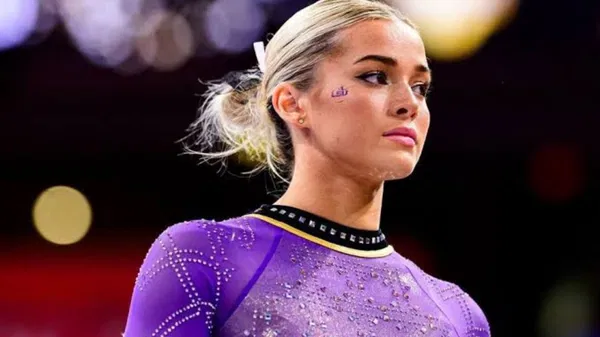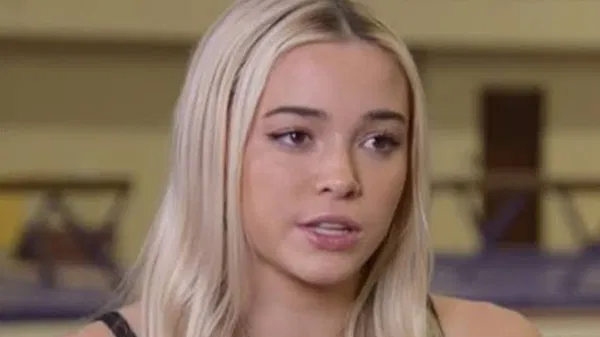
Olivia Dunne Takes a Stand Against NCAA’s $2.8 Billion Settlement
In February 2025, Olivia Dunne wrote a formal letter to U.S. District Judge Claudia Wilken, raising strong concerns about the proposed $2.8 billion NCAA House settlement. Her main issues with the agreement were its lack of transparency, unfair distribution of funds, and the absence of athlete involvement in key decisions. Now, just two months later, Dunne is no longer just voicing her opinion—she’s directly involved in the legal battle, determined to make her voice count.
Dunne has been a prominent figure in the NIL (Name, Image, and Likeness) landscape since the NCAA adopted new rules in 2021. Leveraging her significant social media following, she has built a successful brand. Currently, she ranks 4th among the top 100 NIL athletes, with an estimated value of $4.1 million and a massive 13.5 million followers. As an Olympic sport athlete—unlike many top earners who come from football or basketball—her success has made her a symbol of how the NIL system can empower athletes beyond the traditional revenue-generating sports. With that status, her challenge to the settlement carries significant weight.
On Monday, April 7, Olivia Dunne appeared virtually before Judge Wilken to officially oppose the proposed settlement. She was one of four athletes who testified. During the session, she identified herself not only as a Division I athlete but also as a businesswoman and the highest-earning female athlete since the NIL rules changed. Dunne argued that the settlement undervalued her true earning potential and failed to account for the opportunities she lost before NIL monetization was allowed.
She specifically rejected the back pay offered in the settlement, insisting that her market value was evident long before she began college. According to Dunne, she had already committed to LSU in 2017, and during the COVID-19 pandemic, her popularity exploded. By the time she stepped onto campus, she was already a major influencer with a devoted fanbase. Her early rise in fame, however, was stifled by the then-existing restrictions on athlete earnings.
Dunne explained that because NIL rules were not in place during those formative years, she missed out on significant income. She stated that her earning potential could have started earlier, grown faster, and expanded further had she been allowed to monetize during those years. The brand interest was there, the audience was engaged, and demand was strong. Yet, the system restricted her from tapping into that momentum.
Importantly, Dunne isn’t just fighting for herself—she has consistently advocated for better treatment of athletes as a whole. She has criticized the NCAA for leaving athletes out of important legal and financial decisions that directly impact them. Back in January 2025, she had already raised alarms that athletes were being excluded from the negotiations around the settlement, calling it another example of the long-standing practice of silencing athlete voices in legal matters.
Another issue she brought up was the lack of access to critical NIL data. She pointed out that athletes weren’t given the data they needed to accurately assess how much compensation they deserved. Moreover, athletes were not allowed to upload their own data to correct these estimates without filing a claim and, in doing so, giving up the right to opt out of the damages class. That left them in a difficult position—having to make big decisions without reliable information.

Though this fight has now reached the courtroom, Dunne’s battle is far from over. The judge has granted one more week before any final decisions are made, leaving the door open for further developments in this closely watched case.
Dunne’s stand has sparked wider conversations about athlete empowerment, fair compensation, and the need for systemic change in collegiate athletics.